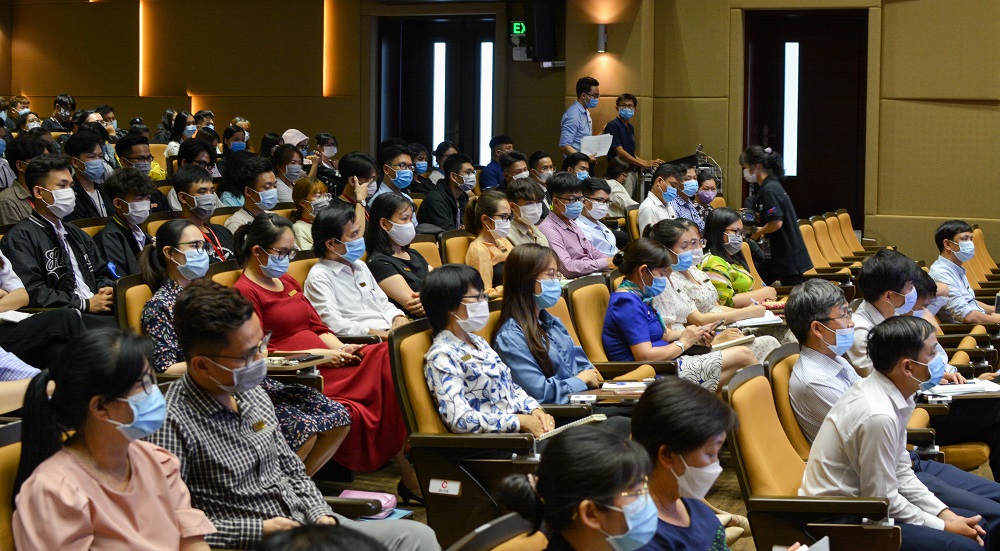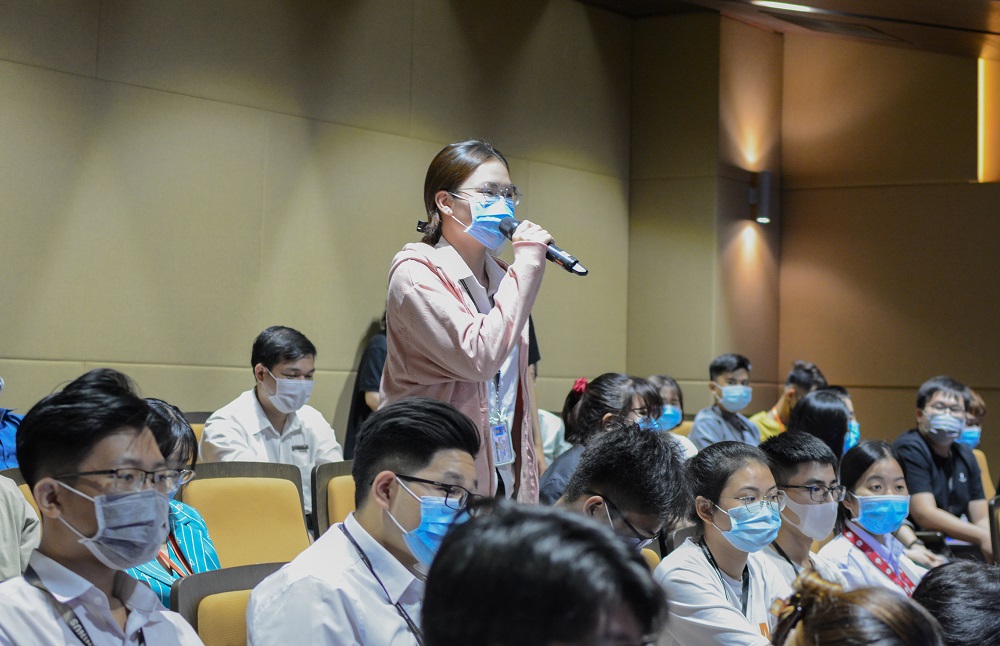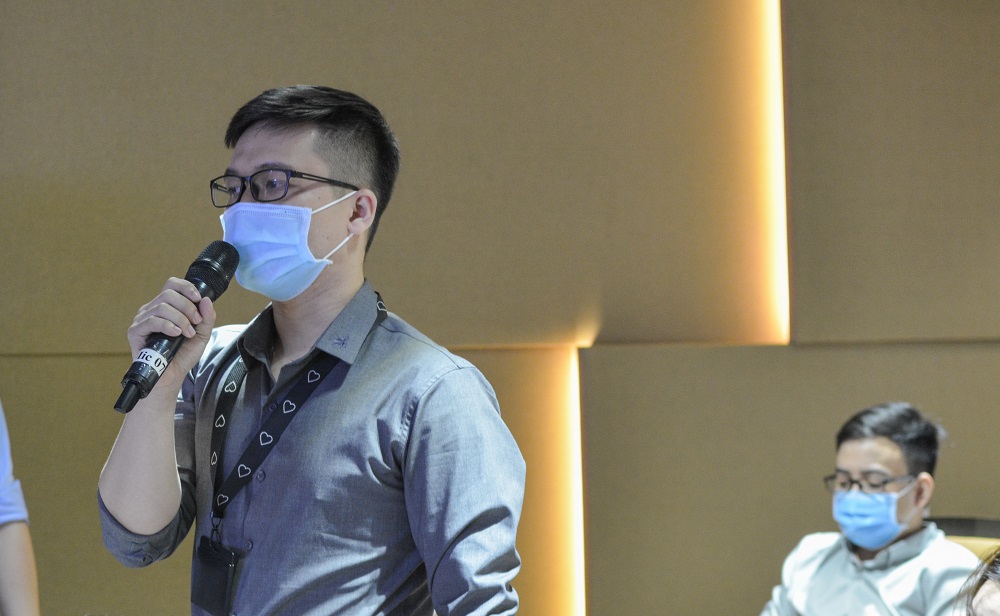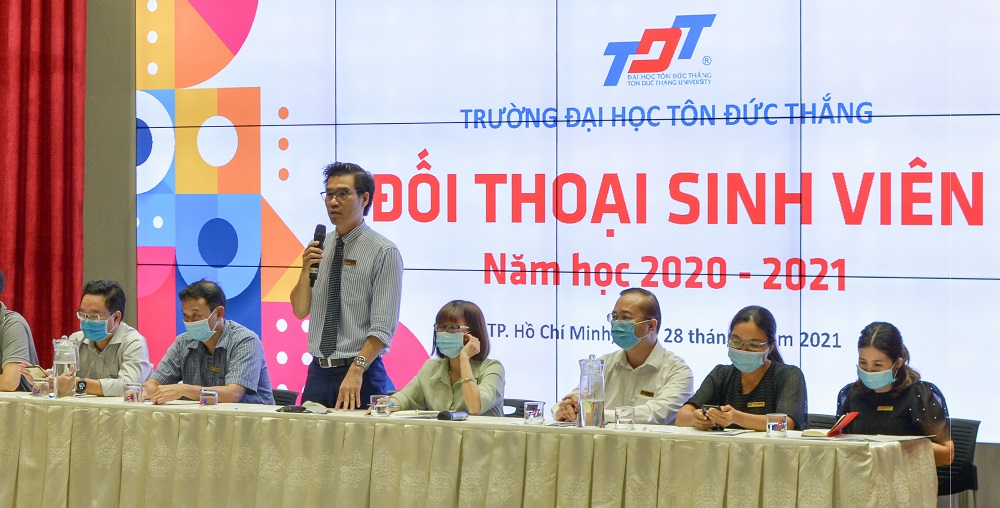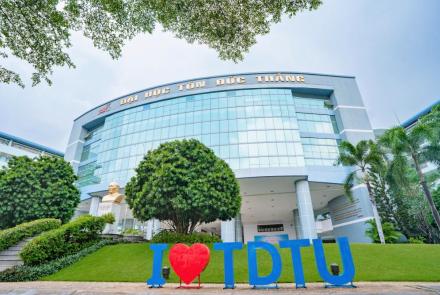A Talk between Leaders and Students of Ton Duc Thang University
On April 28, 2021, Ton Duc Thang University (TDTU) organized a talk between the university leaders and student representatives.
This is a regular activity of TDTU in order to listen to and elicit the feedback and contributions of students in the learning process and activities at the University, from which adjustments and timely support for students will be carried out.
Participants in the talk included Dr. Tran Trong Dao - Acting President of TDTU, leaders of functional units and specialized faculties along with more than 200 students representing students of 16 faculties of TDTU.
In addition to the questions that were sent in advance to the Organizing Committee, many other questions and exchanges were also specifically raised by student representatives. These concerns and queries were also answered in detail with full explanations by related units.
During the talk, many issues related to regulations and expected learning outcomes (ELOs), especially the ELOs of English proficiency, were asked, expressing the students' interest in their academic results. The representative of the Department of Undergraduate Studies, Ms. La Vu Thuy Linh, after explaining each case, also reminded students that it is necessary to read and understand the academic regulations on the student portal of the University to avoid mistakes. Information on other channels is only used for reference because it is incomplete and may not be appropriate for certain situations. In case students are still unclear after reading the regulations on the student portal, they should email the Department of Undergraduate Studies, or go directly to the Student Services Office (E0001) for guidance and support.
Regarding the requirements of learning English, the Head of the Department of Undergraduate Studies said that it is necessary to apply the constraints between the completion of English courses and the registration of courses of the next semester. This helps students complete the ELOs of English proficiency on time. In addition, during the studying process, the specialized modules are taught in English, a majority of the references in English require students to meet the equivalent English requirements to complete the learning tasks well. Therefore, students should not wait until the last semester to focus on English exam preparation.
In addition to academic issues, some student representatives also suggested that university leaders organize volunteer activities, cultural arts, expanding the playground, etc. to help students develop their necessary skills better. A representative of the Department of Student Affairs said that the university always focuses on expanding these activities to help students have the best life environment, develop skills and contribute to the community. However, during the past year, the complicated epidemic situation has made many programs and plans delayed or cancelled. The university will continue to organize extracurricular activities for students in accordance with the epidemic prevention recommendation of the authorities.
Other proposals such as arranging a mid-day break room for non-dormitory-resident students in Tan Phong campus, opening classroom air-cons earlier in the hot season, placing more vending machines on campus, etc. Representatives of related units said that they will conduct a specific survey and submit the implementation plan to university leaders.
At the end of the talk, Dr. Tran Trong Dao drew the conclusions and requested the functional units and faculties to fully note the students’ problems and to come up with solutions soon. For suitable proposals, which fall under the responsibility of the unit to handle, the unit must promptly implement and report to the university leaders. For those that need the coordination of the units or need the opinion of the leaders of the university level, the unit in charge should report to the university leaders for the direction of implementation. He also reminded students to pay attention to learning, thoroughly grasp the University’s regulations to properly implement, and regularly reflect issues related to learning and activities at the university so that the university can promptly support.

